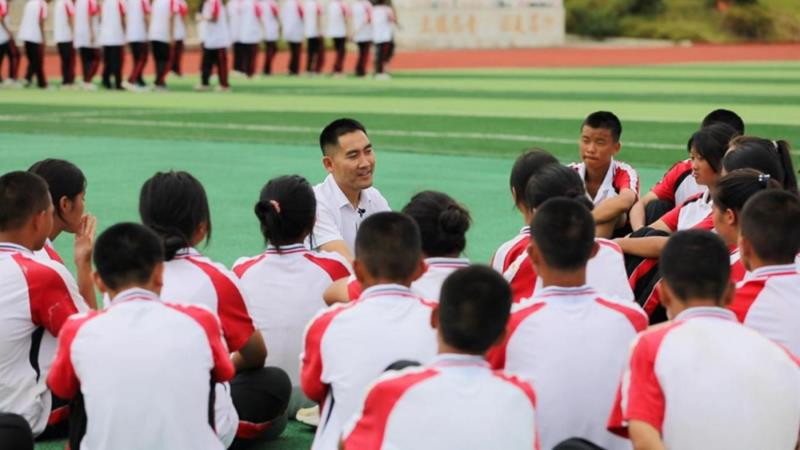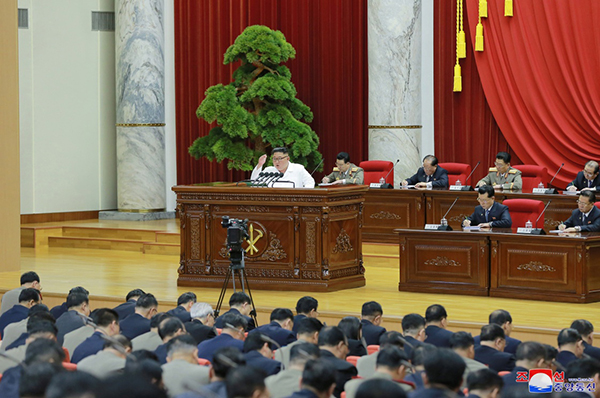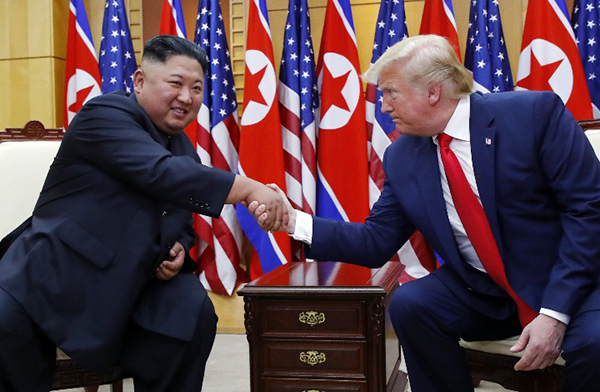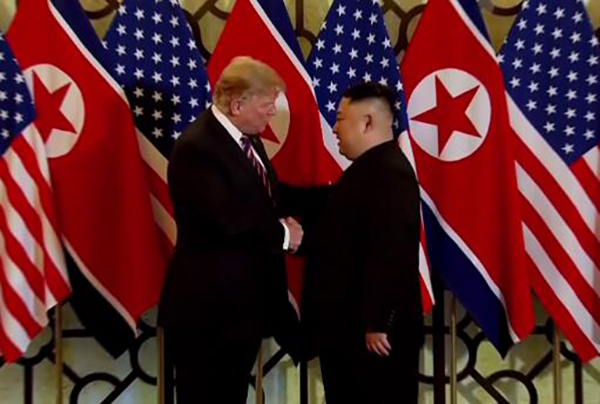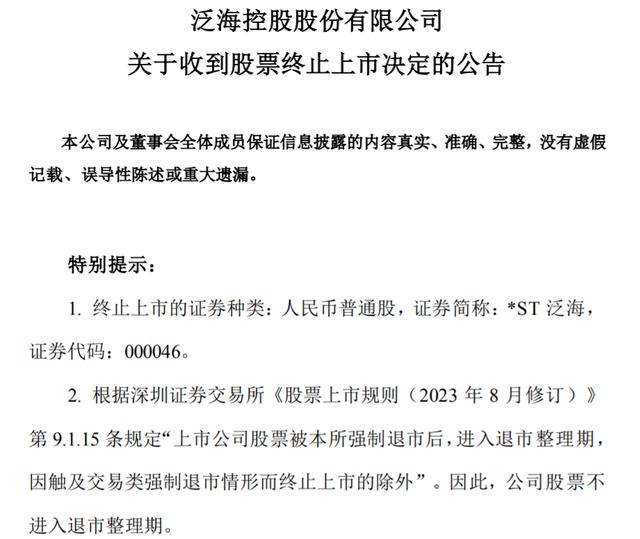"2021 Chang ‘an Street Good Books" is led by the comprehensive group of Chang ‘an Street Reading Club. According to the performance data of more than a thousand issues of good books and new books columns pushed by publishing units and media departments in the past year on the theoretical learning platform of Chang ‘an Street Reading Club, it has been jointly evaluated by experts such as publishing group, media group, cadre education group and doctoral group, and with reference to Party building group, Zhongzhi group, Jingzhi group, political and legal group, enterprise cadre group and health group.
1. A Brief History of communist party, China
Publishing House: People’s Publishing House, CPC History Publishing House.
Author: writing group of this book
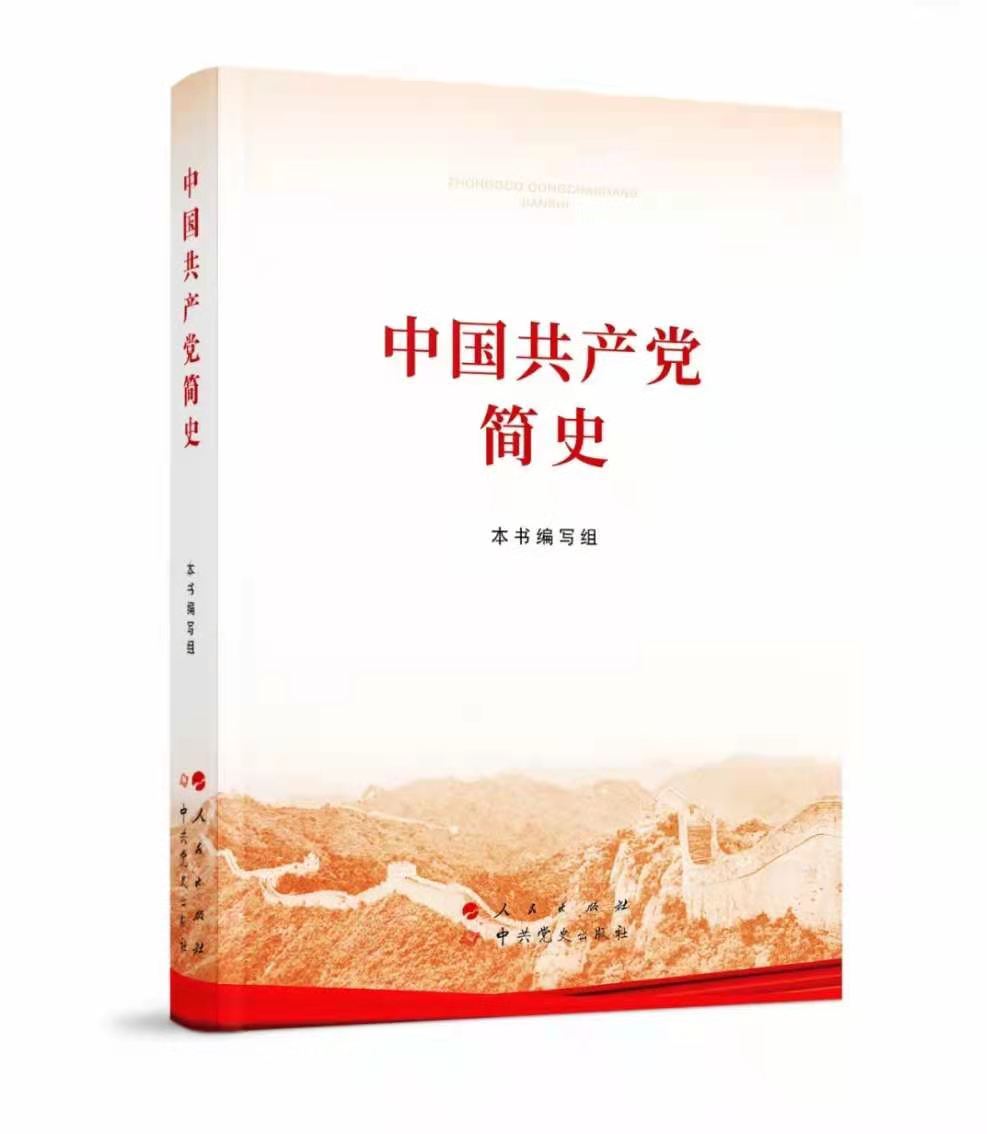
"A Brief History of communist party, China" is a concise reader of party history compiled in accordance with the deployment of the CPC Central Committee and to cooperate with the whole party in carrying out the study and education of party history. In the process of writing the manuscript, the central leading comrades repeatedly put forward clear requirements for drafting and revision.
A Brief History of communist party, China consists of 10 chapters, 70 sections and about 362,000 words. It fully absorbs the latest achievements in the study of party history, and focuses on describing and evaluating major historical events and important historical figures, major principles and policies, important strategic arrangements, major theoretical innovations and their development process in the form of combining history with theory. Explain why the Communist Party of China (CPC) can, why Marxism can and why Socialism with Chinese characteristics is good. Focus on carrying forward the lofty revolutionary spirit and demeanor of the Communist Party of China (CPC) people; A profound interpretation of the inherent logic contained in historic changes, the advantages of roads, theories, systems and cultures behind historic achievements, and a simple and easy-to-understand style of writing are important reading materials for the whole party, especially grassroots party member cadres, to learn the history of the Party.
2. History of Marxism in China.
Publishing House: Fujian People’s Publishing House
Author: Li Junru

The History of Marxist Thought in China takes the Chinese nation’s "stand up", "get rich" and "get strong" as perspectives and clues, and comprehensively and systematically studies the Communist Party of China (CPC)’s efforts to realize the great rejuvenation of the Chinese nation, insisting on closely combining the basic principles of Marxism with China’s reality and characteristics of the times, constantly promoting theoretical innovation and practical innovation, and constantly advancing the ideological process of China Marxism; It reveals a series of basic concepts, basic categories and their internal relations and logical relations formed and put forward in the process of combining the basic principles of Marxism with the reality of China. It is a recent masterpiece of studying Marxism in China and its ideological history in China.
3. Twelve Lectures on the History of the Communist Party of China
Publishing House: Life Reading Xinzhi Sanlian Bookstore
Author: Xie Chuntao, etc
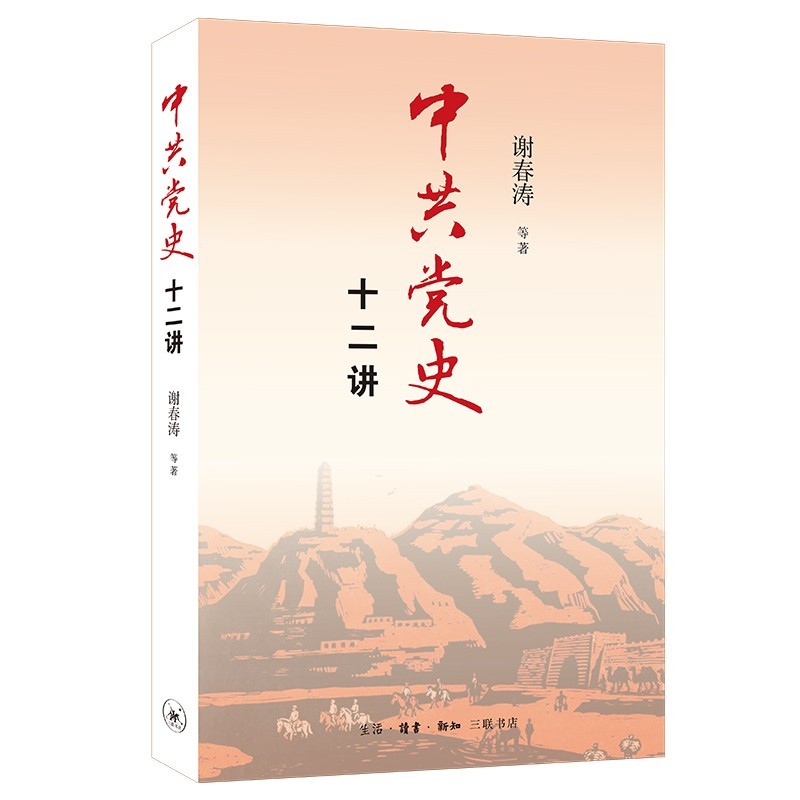
This book is written and edited by Xie Chuntao, vice president of the Central Party School. He and Luo Pinghan, Gao Zhonghua, Lu Yi, Liu Baodong, Zhang Xudong, Li Qinggang, and Shen Chuanliang, eight experts in the field of party history and party building, talked about twelve topics, namely: why the Communist Party of China (CPC) "can", Zhu Mao’s Red Army and Gutian meeting, Zunyi meeting and the victory of the Long March, the unity and unity between the Kuomintang and the Communist Party and War of Resistance against Japanese Aggression, Yan ‘an rectification and the party, the historical experience of the party in seizing state power, and the idea and practice of establishing a new China. The transition from new democracy to socialism, the Party’s exploration of China’s socialist construction road, the Third Plenary Session of the Eleventh Central Committee of the Party and the great historical turning point, and the historic achievements and changes since the 18th CPC National Congress. These twelve lectures highlight the course of revolution, construction, reform and important nodes of the new era that the CPC has gone through in the past 100 years.
4. Understanding the 14th Five-Year Plan: Reform Agenda under the New Development Pattern
Press: CITIC Publishing Group
Author: Liu Shijin
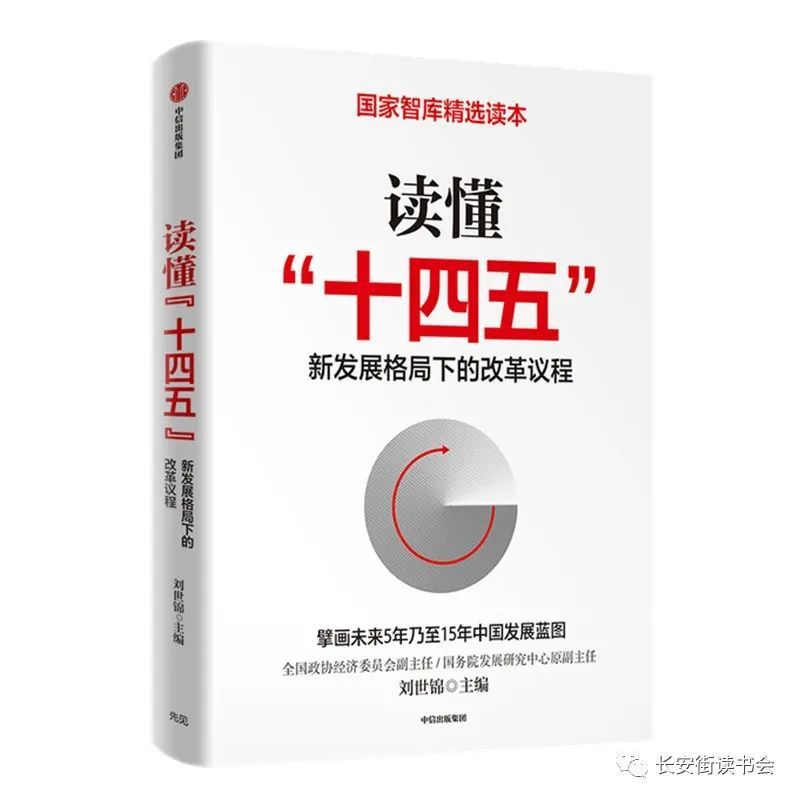
During the "Fourteenth Five-Year Plan" period, China will embark on a new journey of building a socialist modern country in an all-round way. In order to achieve high-quality development, build a modern economic system and improve the country’s modern governance system, forward-looking thinking, overall planning and strategic layout are needed to promote reform and break through. This book is edited by Liu Shijin, deputy director of Chinese People’s Political Consultative Conference Economic Commission and former deputy director of the State Council Development Research Center. With a high sense of historical responsibility, profound theoretical foundation and professional spirit, the authors deeply analyze the background, challenges, opportunities and key areas of reform and breakthrough in the 14 th Five-Year Plan from three dimensions: new development stage, new development pattern and new development concept, and comprehensively expound the development concept, guiding principles, main objectives and strategic layout of this period.
5. Outline of Double Cycle
Publishing House: Guangdong People’s Publishing House
Authors: Cai Fang et al.

The tide of globalization has ended, the world economy has been stagnant for a long time, and the window of reshaping the global value chain is coming. How can China’s economy seize new opportunities and achieve contrarian growth? The domestic economic stage has entered a period of high-quality development, and the "troika" of economic growth has undergone profound changes. How to improve the "potential growth rate" and realize the double cycle of the national economy? Under the double-cycle long-term strategy, China will form a brand-new development pattern in the next decade, which includes macro-propositions such as high-level opening to the outside world, industrial chain remodeling, financial reform, regional balance, aging challenges, and also involves key areas related to your daily life, such as pension, common prosperity, income distribution and consumption. Cai Fang, the chief expert of the national high-end think tank of China Academy of Social Sciences, and senior experts from various fields of the Academy of Social Sciences jointly "diagnosed" the new situation of China’s development, and went deep into the national economic fields such as population, agriculture, investment and finance, providing authoritative answers to ten key issues that China’s economy is about to face.
6. National Finance (2nd Edition)
Publishing House: Peking University Publishing House
Author: Chen Yunxian
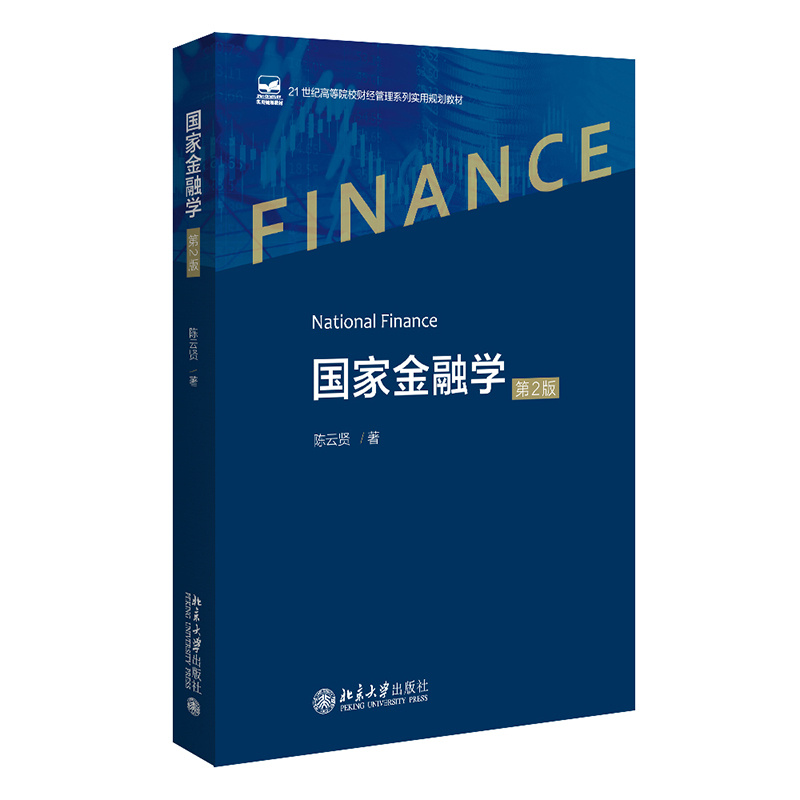
This book is different from some related national financial affairs issues involved in the general Finance, and it starts with eight issues that are the core of a country’s financial development and urgently need to be solved — — That is, after the top-level layout and supervision mode of national finance are selected, the financial development problems involving countries and places vertically and offshore and onshore horizontally, and facing the financial rise of countries all over the world, how is a country’s finance? In the face of the rapid development of artificial intelligence+blockchain high technology in the world, how does a country’s finance respond? The eternal theme of finance is security, liquidity and profitability. How to prevent and deal with a country’s systemic or regional financial risks? How can a country build and promote a new international financial system and a new international financial order in the face of international financial hegemony? — — They are the subjects that national finance must face. The book is divided into ten chapters, including: introduction, top-level layout of national finance, coordination of national financial supervision, development of national financial hierarchy, internal and external linkage of national finance, overtaking of national financial curve, national financial technological innovation, prevention of national financial risks, international participation of national finance, and eight problems to be solved in China’s financial development.
7. "Faithful Descendants: How Leading Cadres Inherit and Carry Forward the Party’s Glorious Tradition and Fine Style"
Press: Party School Press of the CPC Central Committee
Author: Hong Xianghua
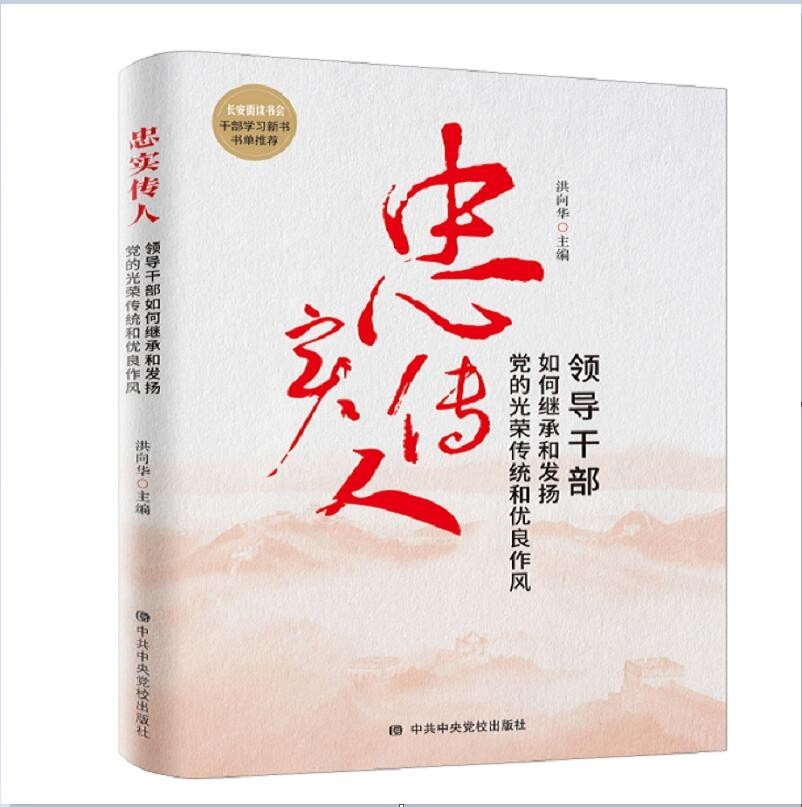
On March 1, 2021, the General Secretary delivered an important speech at the opening ceremony of the training class for young and middle-aged cadres of the Central Party School (National School of Administration), stressing that the glorious tradition and fine style of the Party are precious spiritual wealth that inspires us to be brave and forge ahead, regardless of the past, present and future. Young cadres are the successors of the cause of the party and the state, and they must be determined to be faithful successors of the glorious tradition and fine style of work of the party. In order to help cadres, especially young and middle-aged cadres, thoroughly study and implement the requirements put forward by the General Secretary, our agency invited Professor Hong Xianghua from the Central Party School (National School of Administration) to write "Faithful Descendants — — How leading cadres inherit and carry forward the glorious tradition and fine style of the party. This book closely combines the spirit of the important speech delivered by the General Secretary at the opening ceremony of the training class for young and middle-aged cadres of the Central Party School (National School of Administration) in the spring semester of 2021, clearly points out that loyalty to the Party is the primary quality of communist party people, and profoundly expounds the value of party member leading cadres in the new era to inherit and continuously carry forward the glorious tradition and fine style of the Party. The language style of each chapter is popular and easy to understand, which has both theoretical height and practical breadth. This book is not only suitable as a bibliography for the study and education of Party history, but also as a teaching material for Party schools and party organizations at all levels to train cadres in party member and party member, especially young cadres.
8. Choice: On-the-spot Documentary Debate on Major Ideological Decisions of the Republic (Commemorative Edition)
Publishing House: People’s Publishing House
Authors: Wang Binglin et al.
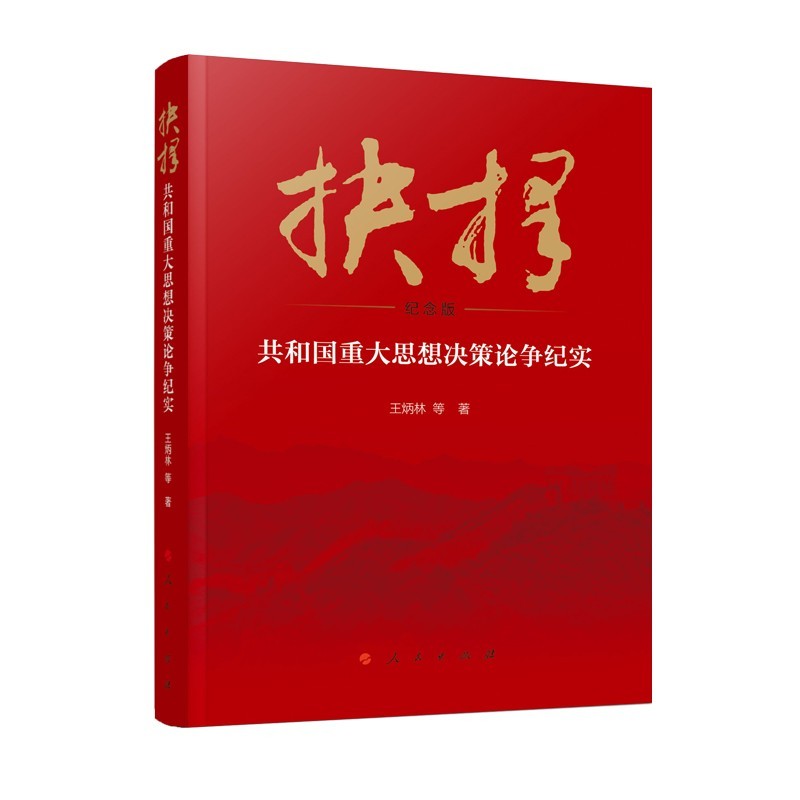
Looking back at the glorious history of the Republic, whether it is to open up the road or to innovate in theory, it is inseparable from ideological contention. Whenever the situation changes at a critical juncture, before and after the introduction of major decisions, there will always be some collisions of different views, and there will always be arguments of different opinions. From resisting U.S. aggression and aiding Korea to peaceful development, from socialist transformation to reform and opening up, from the discussion of truth standards to the struggle in the ideological field … … This book selects major ideological arguments that affect the development process of the Republic, examines the origin of the mirror, and clarifies right and wrong. History is the preferred textbook. By discussing the pros and cons of ideological debate, we can better learn from historical wisdom and strengthen Socialism with Chinese characteristics’s road confidence, theoretical confidence, institutional confidence and cultural confidence.
9. What about the Civil Code? 》
Publishing House: China Social Sciences Publishing House
Author: Sun Xianzhong

The book How to Look at the Civil Code, written by Professor Sun Xianzhong, a famous civil jurist in China, embodies the author’s academic skill of studying and discussing civil law for decades, and the author, as one of the comprehensive and in-depth participants and legislators in the compilation of civil code, analyzes and interprets important papers and articles of the civil code. The author creatively puts forward the basic approach to the study and implementation of China’s Civil Code from three factors: legal thoughts, legal feelings and legal techniques, which provides readers with abundant information about the past and present life of the birth of China’s Civil Code, the function of governing the country according to law undertaken by the Civil Code, the main system renewal, the main disputes in the compilation process and legislators’ views on these disputes. This book also includes the legislative proposals, suggestions and legislative reports put forward during the compilation of the Civil Code by Professor Sun Xianzhong, a famous jurist, as a deputy to the National People’s Congress and a member of the Constitution and Law Committee of the National People’s Congress, as well as some speeches and published articles about the Civil Code.
10. From Agriculture 1.0 to Agriculture 4.0: Ecological Transformation and Agricultural Sustainability.
Publishing House: Oriental Publishing House
Authors: Wen Tiejun, Tang Zhenghua, Liu Yahui, etc

The Zhu Kezhen hypothesis, which focuses on the influence of climate change on the development of human civilization, is broken. Based on the latest archaeological discovery of "Zhejiang people", this paper discusses the far-reaching influence of climate change and the difference of geographical environment on the origin of agricultural diversity from a grand historical and geographical perspective. The book not only systematically combs the evolution process of agricultural development, but also explains in detail the pattern of the world agricultural development model in modern times, and introduces the rich experience of agricultural sustainable development at home and abroad from the perspective of international comparison.
